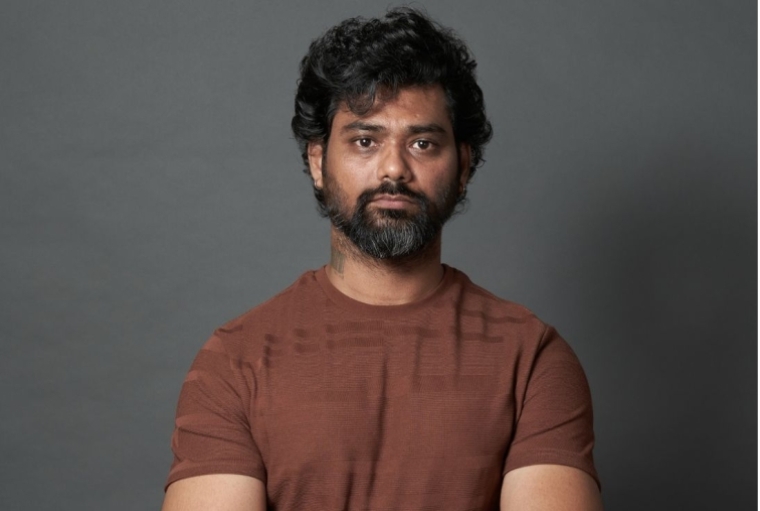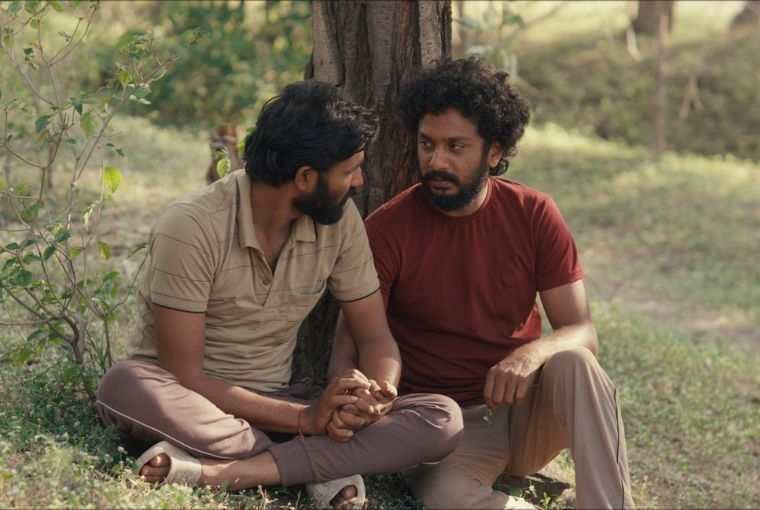

As a part of 35 globally selected films under Marché du Film showcase, the film Arms of a Man went to Cannes this year. Director Rohan Kanawade showcases a unique narrative that bridges rural and urban experiences, offering a fresh perspective on queer lives in India. The film stands as a testament to the power of authentic storytelling and the resilience of independent filmmakers. In a detailed conversation, producer Neeraj Churi and director Rohan Kanawade shared their motivations, challenges, and aspirations for the film.
The Director's Vision
Rohan Kanawade's inspiration for Arms of a Man is deeply personal. The story germinated from his experience of mourning his father in 2016 for which he had to go back to his village. "Strangers would ask why I wasn't married, which was suffocating," Kanawade recalls. Avoiding the village for years, he had to face these questions during the mourning period. This experience, filled with societal pressures and personal grief, formed the foundation of the film. Kanawade wanted to change his narrative through storytelling. "I thought, what if I had a friend in the village who knew about me?" This fictional escape from his reality inspired the film's central relationship. The story juxtaposes the struggles of a rural man with those of an urban man, highlighting their shared challenges despite different backgrounds.
Addressing Loneliness and Optimism
Kanawade aimed to break the common trope of loneliness in queer narratives. "Most queer stories only showcase loneliness. I wanted to show optimism," he explains. His own experience of immediate acceptance by his uneducated parents contradicted the usual narrative of struggle for acceptance. Through his film, Kanawade wanted to portray this positive aspect, providing a counter-narrative to the often-tragic queer stories.

Challenges in Producing Independent Queer Films
The production of Arms of a Man was fraught with challenges. From finding funding to shooting in a remote village with no cell phone reception, every step was a test of perseverance. The film's realism required non-professional actors and a specific aesthetic, making it difficult to attract initial support. "We wanted to achieve a simplicity that made the story transparent and realistic," Kanawade emphasizes. Despite these hurdles, the dedication of the team and support from the queer community brought the project to fruition. "Some queer community members funded us, which was crucial," Kanawade notes.
Producing independent films, particularly those with LGBTQ+ themes, presents unique challenges. Churi delineates the hurdles: "People are not convinced there's a market for these films, leading to hesitancy in investment. This impacts the quality of projects." Despite these difficulties, Churi emphasizes the importance of not categorizing such films as non-commercial. India's large population, with an estimated 6% identifying as LGBTQ+, presents a significant potential audience. "If films in other countries are successful, why can't ours be?" Churi questions. The problem lies in distribution mechanisms, which often fail to support queer films. "Top sales agents at Cannes see the commercial potential of our films. It's time for Indian distributors to take the same leap."

The Importance of Film Festivals
Film festivals play a crucial role in the journey of independent films. Churi highlights the significance of prestigious festivals like Cannes. "Cannes is not just a festival; it's a market where scripts are bought and sold, and where industry professionals connect." Festivals provide a platform for films to gain recognition, attract sales agents, and secure distribution deals. Different festivals serve varied purposes. LGBTQ+ festivals, for instance, help showcase the zeitgeist of the community globally. Diasporic South Asian festivals bring attention to films from the subcontinent, expanding their reach. "Festivals help us take our stories to people willing to understand, consume, and grow their minds," Churi asserts. For Churi, the motivation to produce such films stems from a desire to be part of the solution. "We're not just creating LGBTQ+ stories; we're creating good cinema," he states.
Words Paridhi Badgotri
Date 24.05.2024